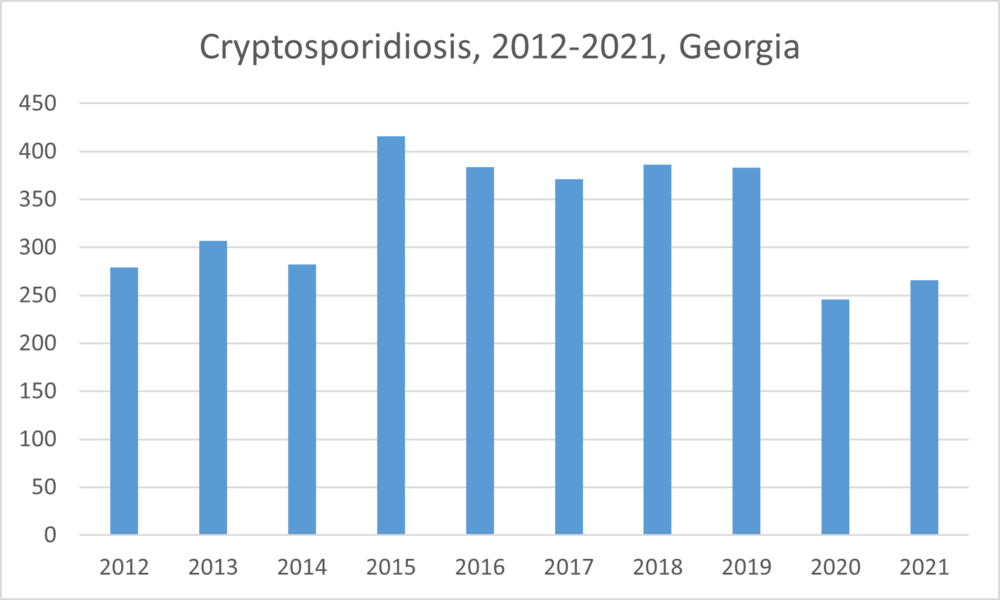
Cryptosporidium
Cryptosporidiosis Basics
Symptoms of Cryptosporidiosis (“Crypto” for short) usually begin about 7 days (range 2 to 14 days) after a person comes in contact with the parasite. The most common symptom reported is watery diarrhea. Other symptoms may include: stomach cramps or pain, dehydration, nausea, vomiting, fever and/or weight loss. Some people may have no symptoms at all. People usually have symptoms for 1 to 2 weeks, but symptoms can last up to 4 weeks. Some people experience symptoms that seem to get better then get worse again for up to 30 days.
Crypto lives in the intestines of infected people and animals and is shed in stool. Shedding occurs when symptoms begin and can continue for weeks after symptoms end. A person can become infected after accidentally swallowing the parasite. The Crypto parasite can be found in soil, food, water, or surfaces contaminated with feces from infected humans or animals.
Stool specimens must be tested in order for a person to be diagnosed with Cryptosporidiosis. Most healthy people will not require antibiotics to treat their Crypto. Nitazoxanide has been FDA-approved for treatment of diarrhea caused by Cryptosporidium in people with healthy immune systems and is available by prescription.
People with weakened immune systems, such as people with HIV/AIDS, people with inherited immune system diseases, or cancer or transplant patients taking immunosuppressive medications, can experience more severe, chronic, or even fatal illness. This risk for severe illness may differ depending on an individual’s degree of immune suppression.
The best way to prevent Crytposporidium infection is by practicing good hand hygiene. Wash your hands with soap and water before eating or preparing food, after changing diapers, and after using the restroom. Avoid swallowing water from ponds, lakes, or recreational water (i.e. pools and waterparks). Ensure your juices and milks are pasteurized. Avoid sexual activity with persons who have diarrhea or who recently recovered from Crytposporidium.
See CDC website for more information.
https://www.cdc.gov/cryptosporidium/about/
Cryptosporidiosis for Healthcare Professionals
Cryptosporidiosis is a notifiable disease in Georgia, which means that every person with laboratory-diagnosed illness should be reported to the Georgia Department of Public Health. The number of cases is reported from the state to the Centers for Disease Control and Prevention (CDC) for national disease surveillance.
Cryptosporidiosis for Immune Compromised Individuals
People with reduced immune systems may be at higher risk for Cryptosporidiosis. Immune compromised people can talk to their healthcare provider for more guidance.
Please refer to this and other CDC websites for more information on Crypto prevention for immunocompromised people.
https://www.cdc.gov/cryptosporidium/prevention/
Cryptosporidiosis Statistics for Georgia
Reported cases of cryptosporidiosis were slightly higher from 2015-2018 than previous three years (2012-2014) then reported cases decreased during the COVID-19 pandemic in 2020-2021. Cryptosporidiosis reports are higher in the summer months and peak in August.

Updated 12/30/2022